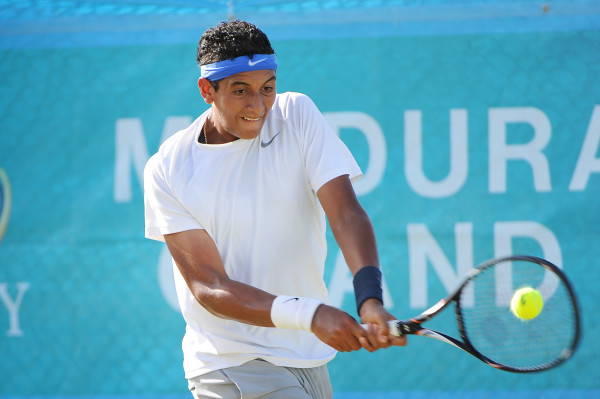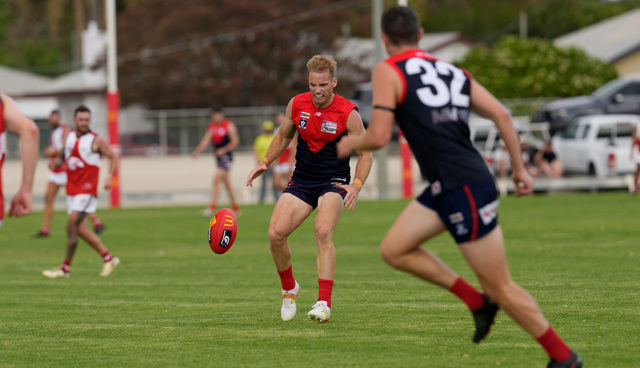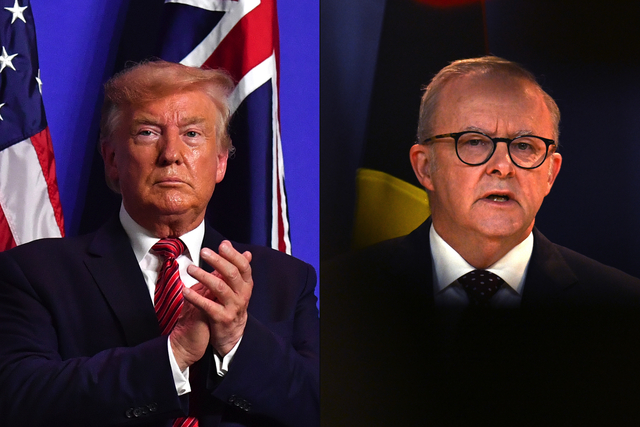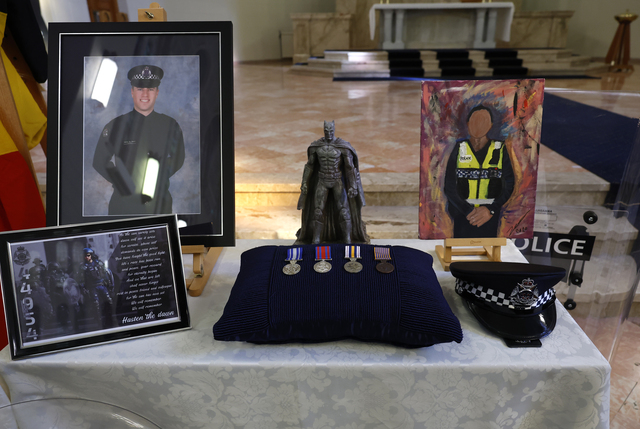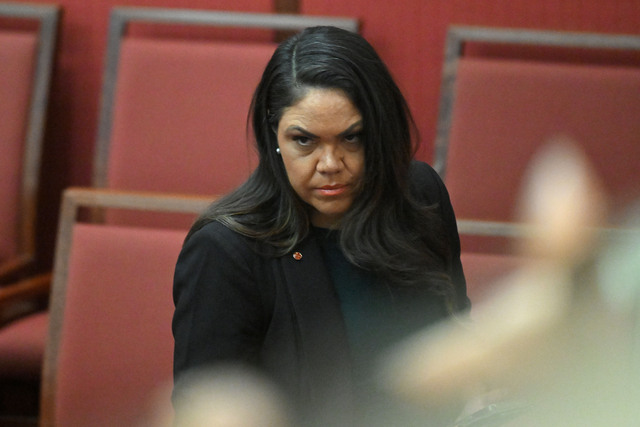KIDS mimic what they see.
And that is particularly prevalent in sport, where on any given night, on any basketball court in the world, there are millions of kids imitating Steph Curry or LeBron James.
Or, in Aussie backyards, where they are celebrating goals like their favourite AFL players, or playing cricket shots like the flamboyant Glenn Maxwell.
Which brings us to Nick Kyrgios.
Do we really want our kids mimicking him?
The ongoing debate about whether Kyrgios is good for the sport of tennis flared up this week due to his antics at Wimbledon, where he has again been at his best and worst on the way to his first Grand Slam final.
Those who say he is good for the game point to the attention and headlines he generates, and to the increased television ratings and ticket sales. Most of it, of course, is focused on his behaviour rather than his racquet-work, which is sublime enough to be the whole show if he allowed it to be. But is never the only story.
Spitting, abusing, racquet-throwing, sulking, swearing, tanking, taunting … on any given day they can and have been part of the Nick Kyrgios entertainment package, if that is what you call it.
It’s not for me, I find it uncomfortable and cringeworthy, but it sells, so each to their own.
It’s also why tournament organisers don’t want him banned. He is the sport’s soap opera, their WWF villain to market, and he puts bums on seats.
But at what long-term cost?
I am not a helicopter parent, but with impressionable young kids who do mimic what they watch on TV, I wonder if Kyrgios matches should be PG or G-rated viewing?
While we should be careful not to expect sporting stars to be moulded into the role society has ordained for them, Kyrgios too often crosses the line of what is basic human decency. And that should never be accepted.
Again, in the past week, the now 27-year-old humiliated umpires and linespeople, even ridiculing them for their age.
He also spat in the direction of the crowd for their lack of respect towards him, completely missing the hypocrisy of his own outrageously disrespectful behaviour towards many others, over many years.
As Age sports journalist Greg Baum wrote this week: “This is not about what does and doesn’t pass for entertainment. It’s not about sport. It’s about basic human dignity.”
The sport of tennis has enabled this sort of behaviour for years.
Where other sports would throw heavy bans on players, the likes of multimillionaire Kyrgios are hit with meaningless fines, to ensure they don’t miss being the drawcard at the next tournament.
Officials are seduced by the sugar hit of Kyrgios ticket sales at the expense of the sport’s culture, and there is a consequence to that.
Consider this: If Nick Kyrgios is the poster boy of your sport, what does your next generation of players look like?
By enabling his behaviours to continue, what are you showing kids is the acceptable standard?
The AFL this year came down hard on player dissent against umpires. Perhaps they went a bit far, but players and coaches alike all supported the intent of the rule. And it has quickly changed behaviours of players. It starts with respect.
I have been watching my son in under-10 football this year and the behaviour of kids across the league is exceptional. Last weekend, after one player raised his arms in dissent, the coach quietly reminded the team at half-time that we don’t do that, that the umpire is doing a great job, and we just worry about playing the game. It didn’t happen again.
If tennis feels it needs boorish behaviour to be entertaining, then it cheapens itself to being a form of trashy reality TV.
Millions do watch reality TV programs, and the more rude, obnoxious and self-centred the “stars of the show” are, the more they seem to rate.
Krygios rates, which in his mind vindicates his behaviour. It’s why he spruiked this week how important he is to the sport.
But, as a parent, I see it differently.
I think I speak for many parents when I say if my children spoke and acted like Kyrgios does to an umpire or official, they wouldn’t be playing next week.
I would talk to them about respect and tell them they needed to grow up.
But, if this is tennis, and if, as a consequence, parents would rather their kids watch or play something else, then that is the sport’s double fault.

